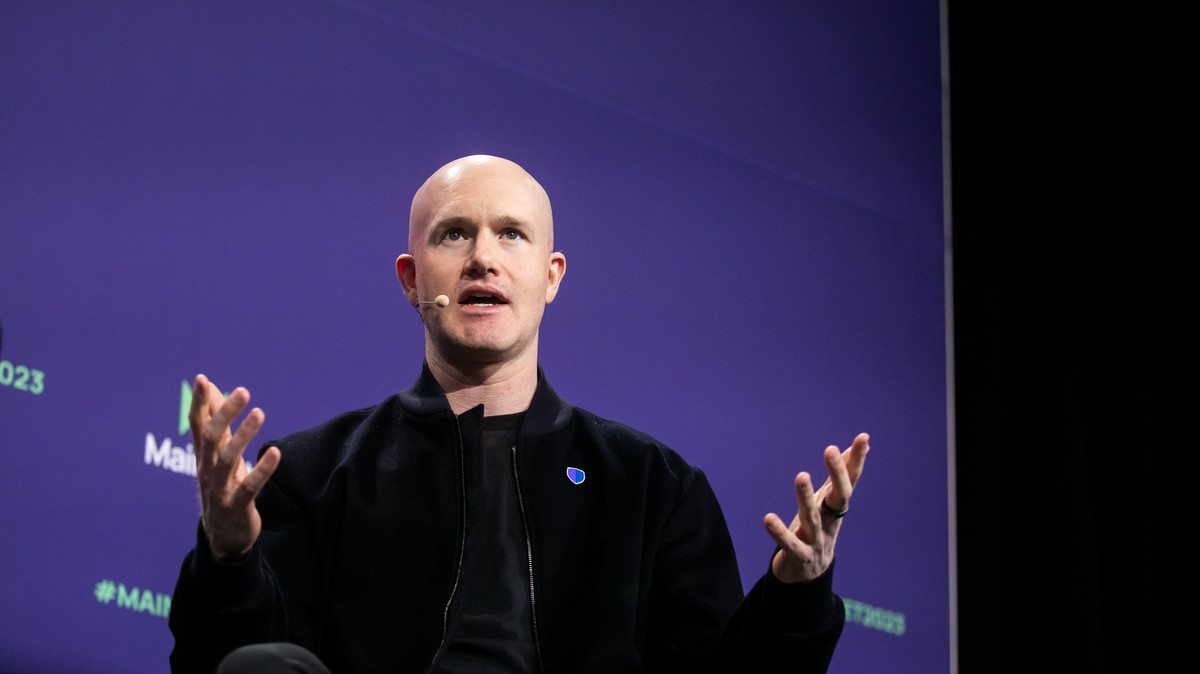- Coffee & Crypto Daily
- Posts
- ☕️ China Doxxes 1.4 Billion People 🇨🇳 🐼
☕️ China Doxxes 1.4 Billion People 🇨🇳 🐼
🎋 Time to meet every person in the People’s Republic 🐉

Sponsor Us 📣 | Follow Us 👍 | Past Editions 📰
With the internet comes the promise of anonymity.
You wouldn’t be able to post unfiltered nonsense in your YouTube comment or type your most embarrassing questions into a search engine if your boss was going to confront you about it at work on Monday.
No, anonymity is a crucial part of the recipe that makes the internet the disgusting, beautiful, hedonistic goulash that it is.
But what if that anonymity was about to end for more than a billion people?


Espresso Shots
☕️ You Used to Call Me On Your BONK Phone 📱 👀
Solana’s BONK has had a stellar performance in the past month, up a whopping 821%.
And BONK’s bump is having a pretty direct impact on Solana. Since the surge, Solana’s Saga smartphones have sold out.
This buying frenzy occurred after consumers discovered that the Saga phones came with a BONK airdrop included.
Speaking of BONK airdrops, Solana developers are sitting pretty right now, as the team was airdropped billions of BONK last December as a Christmas bonus.
If those devs held, that Christmas bonus would currently be worth around $500,000, which isn’t just a Christmas miracle, but absolutely BONKers.
☕️ SFM Token Crashes 💥 📉
SafeMoon’s SFM crashed 50% last week after SafeMoon declared Chapter 7 bankruptcy.
Certainly, the largest factor in SafeMoon’s meteoric occurred last month, when the DOJ unsealed an indictment against three of SafeMoon’s top executives, charging them with conspiracy to commit securities fraud, wire fraud, and money laundering.
“As alleged, the defendants deliberately misled investors and diverted millions of dollars to fuel their greedy scheme and enrich themselves by purchasing a custom Porsche sports car, other luxury vehicles and real estate,” said United States Attorney Breon Peace in a press release. “As fraudsters increasingly use digital assets to mislead investors and misappropriate funds, our Office will be at the forefront of pursuing them and their ill-gotten gains. We will continue our focus in the digital asset space and bring those who defraud investors in this area to justice.”
Two of the executives, Braden John Karoney and Thomas Smith, have already been arrested. Kyle Nagy remains at large.
Turns out SafeMoon… wasn’t the safest moon for investors’ funds. And if Kyle Nagy is hiding anywhere, it’s in the dark reaches of space.
☕️ The United Network States 🇺🇸 💻
The Balaji Fund, led by investor Balaji Srinivasan, is a conglomerate of Silicon Valley billionaires who want establish a new society.
Dubbed the “Network States,” this new, libertarian society will be focused on tech and be free of American regulations.
Though Srinivasan, the former chief technology officer of Coinbase, is not a billionaire himself, he has attracted the support of Coinbase CEO Brian Armstrong and venture capitalist Fred Wilson.
Srinivasan has been pushing the idea of the Network States for over a decade, as he feels the West, technologically, is on an irreversible decline.
Musicians Billy Joel and Tony Bennett intend to join this new society, which coincides the release of their new single, “Network State of Mind.”

Spilling the Beans

China’s Burn Book 🔥 📖
The central premise to Mean Girls, is just that, they’re mean girls.
But being a member of the Plastics goes beyond just being exclusive and rude to the general populace of North Shore High School.
The Mean Girls are so mean, that they created a burn book where they could write their nastiest, most scathing takedowns… in private.
And for some of us, the internet functions as one massive, international burn book.
You can say how you feel, whether that’s kind or cruel, and in general, your identity is protected.
But the Chinese government is about to pull a Cady Heron and photocopy the internet’s burn book for the entire school to see.
Confused? Let us explain.
China’s Ministry of Public Security is launching a new initiative, one that would utilize China’s Blockchain-based Service Network (BSN) to verify the identities of the entire, internet-using population of China.
The new initiative is called the RealDID program. RealDID provides the user with a DID address, one that can be used to log in to certain websites and business-related platforms, without divulging any personal data.
On the surface, this sounds like a good idea—the separation between the transactional and the personal.
But when you consider the messenger, the government of a nation that is notorious for its internet censorship, it’s hard to fully believe that RealDID will be the decentralized, identity-protecting tool it's made out to be.
Particularly considering that this initiative comes on the heels of China’s new social media mandate.
China’s new social media restrictions require Chinese content creators or influences with over 500,000 followers to display either their real names or their financial backers in their profiles.
Now, there are two schools of thought here. On one level, if you aspire to be an influencer and ultimately… influence, then it seems like disclosing your real identity is a necessary step on the road to internet stardom.
Hell, sometimes it would be nice if American influencers revealed their financial backers instead of pretending that their plugs for Travelocity or Nature Valley Bars happened organically.
But on the flip side, sometimes anonymity is the delicious, raspberry swirl on a public persona.
Imagine if we made the guy from V for Vendetta tell everyone who he was, or Batman, or Dril for that matter.
But secret identities aside, the announcement of RealDID prompts some big questions about crypto, decentralization, and the nature of privacy.
Part of crypto’s inherent promise is anonymity. In fact, crypto’s gotten so good at anonymity that America’s been not-so-quietly asking crypto to reign it in.
Crypto mixers, programs that mix together different transactions to obscure transaction history, are quickly becoming outlawed for their money laundering potential.
And that’s in America. We’re a little more rock and roll in our civil liberties than China.
So, when China comes up with this brand new, decentralized method of protecting its citizens’ privacy, we’re right to be a little dubious.
And that’s nothing against China. When any centralized institution starts offering visions of a decentralized paradise… it’s time to start looking that gift horse in the mouth.
Because when it comes to privacy, it’s a public concern.

Crypto 101

Fiat Currency: Any monetary denomination declared legal currency by one of the world’s governments. Think the American dollar, the euro, the peso, etc.
Even though Bitcoin has been declared legal tender in El Salvador, crypto is still very much not fiat currency.

The Last Sip
The Last Sip: Turns out SafeMoon isn’t the safest moon. We’d have to guess that the safest moons are either Titan or Atlas, which orbit Saturn, because they sound the strongest.
Stay Caffeinated,
Coffee & Crypto Team
That's all for today! If this email got you hooked on our unhinged crypto takes, be sure to get a full dose on Twitter @GetCoffeeCrypto.
If you find yourself smiling at any of our dumb jokes, or even *learning* something - make sure to share this newsletter with your friends!
If you get 5 friends to sign up - or even enemies, we don't care - we'll send you our Bitcoin Bootcamp Ebook! This thing is packed with info and is the ultimate guide to the world’s ultimate currency.
Just hit the Click to Share button in the section below to get started!
What did you think of today's newsletter?It's ok, you won't hurt our feelings. |
DISCLAIMER: None of this is financial advice. This newsletter is strictly educational and is not investment advice or a solicitation to buy or sell any assets or to make any financial decisions. Please be careful and do your own research.presi


